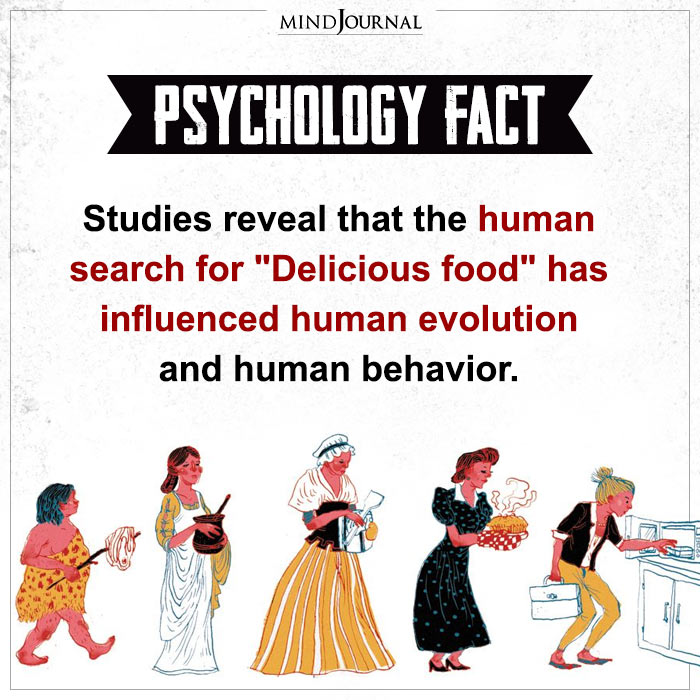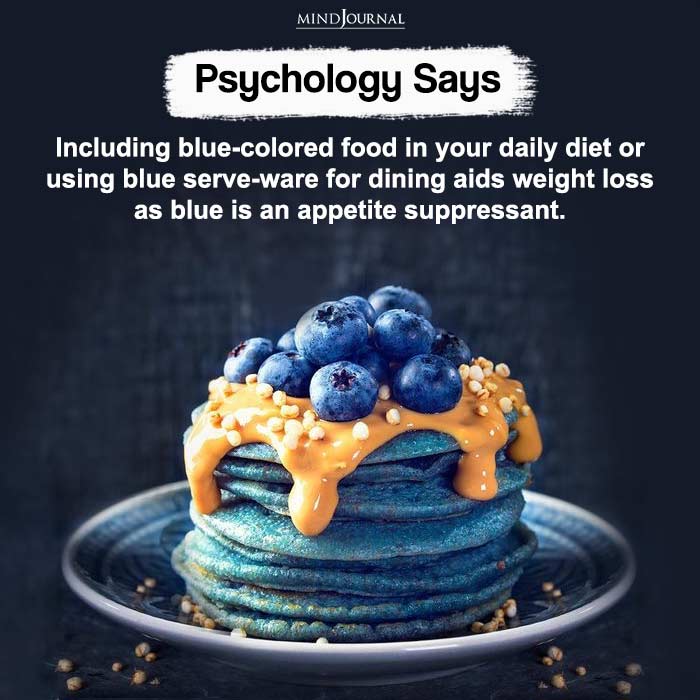Are you a plant-powered warrior in search of the ultimate protein-packed fuel? Wondering where you can get your protein as a vegan? Here are some high protein vegan foods that will nourish your body, tantalize your taste buds, and leave you feeling stronger than ever before.
My fellow vegans and vegetarians, prepare to silence the skeptics. Let us unleash the power of plant-based protein as we unlock a treasure trove of delicious and best vegan protein sources.
6 Best vegan protein sources
Getting enough protein as a vegan or vegetarian can be challenging. But with the right high protein vegan foods, you can meet your body’s protein needs and build muscle. Here are some of the best plant based protein sources to incorporate into your diet.
1. Beans and Lentils
Beans and lentils are classic high protein vegan foods. They are loaded with both protein and fiber, making them some of the best plant based protein. Common high protein beans include chickpeas, kidney beans, black beans, and soybeans.
Lentils like red lentils, green lentils and brown lentils also pack a decent protein punch. Half a cup of cooked beans has around 7 to 8 grams of protein, while the same amount of lentils provides around 9 grams.
Make beans and lentils a regular part of your diet by enjoying them as chili, soups, stews, dips and curries as they are the best vegan protein sources. You can also add them to grain bowls, salads and wraps. Soaking and cooking your own beans is more economical and often tastier than canned beans.
2. Tofu and Tempeh
These soy-based foods are one of the best protein for vegans. Tofu is made by curdling soy milk and pressing the resulting curds into blocks. Half a cup of regular tofu contains roughly 8 grams of protein.
Tempeh is made by fermenting soybeans and anchoring them together with a mold. Tempeh contains around 15 to 20 grams of protein per 3 ounce serving.
Tofu and tempeh have a firm and chewy texture that absorbs the flavors of sauces, marinades and spices well. You can easily incorporate tofu into stir fries, wraps, soups, salads, Buddha bowls and desserts. Tempeh is a tasty protein addition to veggie burgers, tacos, chili and stews.
Related: 4 Tips For Better Mental Health Through Nutrition
3. Nuts and Nut Butters
Nuts and seeds are a go-to source of vegetarian protein. Nuts like almonds, cashews, walnuts and hazelnuts provide between 4 to 8 grams of protein per ounce. Brazils, pistachios and pine nuts also contain impressive protein content.
Nut butters made from these nuts are another convenient high protein vegan food source. Peanut butter packs around 8 grams of protein in 2 tablespoons, while almond butter contains around 7 grams.
Enjoy nuts and seeds as a snack, in oatmeal, salads, homemade granola bars, pasta dishes, smoothies and desserts.
4. Leafy Greens
Leafy green vegetables like kale, spinach and Swiss chard may be lesser known high protein vegan foods, but they contain respectable amounts of protein making them the best protein for vegans.
Just 1 cup of cooked kale provides 1.8 grams of protein, while spinach has 1 to 2 grams per cup. The amino acid profile of leafy greens also makes them the best plant based protein sources.
Eat leafy greens raw in salads or cook them into soups, stir fries and pastas. Some creative ways to enjoy greens for protein are pesto, juices and smoothies. Don’t forget to include cruciferous greens like bok choy, collard greens and mustard greens as well.
5. Whole Grains
Whole grains like brown rice, barley, quinoa, bulgur wheat, millet, oats and whole wheat contain vegetarian protein. Though their protein content may seem low, eating enough whole grains can add up.
One cup of cooked quinoa provides an impressive 8 grams of protein, while the same amount of brown rice contains around 5 grams.
Make the most of whole grain protein in bowls topped with beans, roasted veggies, seeds and dressings. Enjoy them in salads, pilafs, casseroles, soups and pilafs. Whole grains stay satiating for longer, helping you avoid excess snacking.
6. Seitan
Made from gluten, seitan is an alternative non meat protein for vegans. A 3 ounce serving provides around 27 grams of protein. Seitan has a texture similar to chicken or beef and soaks up the flavors of marinades well.
Seitan is perfect for tacos, stir fries, curries, salads and sandwiches. Experiment with pan frying, baking, braising and grilling this high protein vegan food to prepare flavorful and satisfying plant-based meals.
But wait! There’s more to learn about high protein vegan foods. Let us explore some more options for the best vegan protein sources.

8 More best protein for vegans you must know about
Looking for more vegan and vegetarian protein sources? Here are some of the best plant based protein and non meat protein options you should consider as a vegan –
7. Quinoa
This ancient grain is a complete protein, containing all essential amino acids. One cup of cooked quinoa has 8 grams of protein.
8. Amaranth
This gluten-free grain provides 7 grams of protein per cooked cup. It’s high in lysine, an amino acid lacking in many grains.
9. Hemp hearts
These hulled hemp seeds pack 11 grams of protein per ounce. They have a mild nutty taste and add protein to granola, salads and smoothies.
Want to know more about such high protein foods vegetarian can eat? Read on.
10. Chia seeds
These tiny seeds contain 4 grams of protein per tablespoon. They’re high in omega-3s and absorb liquid to form a gel.
11. Vegan protein powder
Protein supplements made from peas, brown rice, hemp or pumpkin seeds are a great way to boost your protein intake as these are excellent vegetarian protein sources. Look for ones with 15 to 25 grams per scoop.
12. Soy yogurt
Soy-based yogurts provide 10 to 15 grams of protein per cup, making them a tasty high protein vegan snack. No wonder they are considered high protein foods vegetarian.
13. Nutritional yeast
This deactivated yeast packs a protein punch, with 8 grams per tablespoon. It adds a cheesy, savory flavor to meals.
Related: Food For Mental Health: 10 Foods That Can Help Boost Your Mood And Reduce Stress
14. Spirulina
This blue-green algae contains around 60% protein. While you’d need to consume large amounts to significantly boost protein intake, it’s a novel non meat protein food.
These vegan and vegetarian protein sources will add more flavor and texture to your meals and make you healthier at the same time.
Things you should know about protein for vegans
Here are some important things to remember about high protein vegan foods and non meat protein sources-
1. Soy products like tofu, tempeh and edamame are an especially concentrated source of plant based protein. 1/2 cup of tofu has around 16 to 18 grams of protein!
2. Hemp seeds are also quite dense in protein, providing about 10 grams in just 3 tablespoons. They’re a great vegan snack and protein booster for smoothies, salads and baked goods.
3. Vegan protein powders made from pea, brown rice or hemp can help you hit higher protein targets if your diet alone falls short. Mix them into your usual smoothies, oatmeal and baked recipes.
4. Vegetables like broccoli, cauliflower and brussels sprouts have a decent amount of protein per calorie as well. Aim for 2 to 3 cups of cooked veggies per meal for extra plant-based protein.
5. Make sure to regularly combine high protein foods vegetarian at meals. This helps provide all the essential amino acids your body needs to make the most of the protein you eat. For example, pair beans with rice or lentils with whole grains.
6. Add vegetarian protein sources and foods like vegan protein shake into as many meals and snacks as you can – breakfast, lunch, dinner and in-between. Spreading out your veggie protein intake helps maintain stable blood protein levels throughout the day.
Make sure to include a variety of these high protein vegan foods in your vegetarian diet to meet your body’s daily protein requirements easily and enjoyably. With the right high protein foods vegetarian, nourishing and balanced plant-based nutrition is quite doable.
5 Best high protein vegan recipe you should try
Here are some high protein vegan recipe that every vegan and vegetarian must try out with the best vegetarian protein sources to add more flavor, spice and texture to their palette –
1. Tofu Veggie Stir Fry
Stir fry firm tofu with broccoli, carrots, bell peppers and bok choy. Toss with a homemade sauce of soy sauce, vinegar and maple syrup. Serve over rice or quinoa for a well-balanced high protein vegan meal.
2. Black Bean and Lentil Chili
Make a hearty chili with ingredients like black beans, brown lentils, crushed tomatoes, chili powder, cumin and corn. The beans and lentils combined will give you around 20 grams of protein per serving. This is an easy-to-cook, tasty high protein vegan recipe.
3. Chickpea and Kale Salad
This satisfying salad combines chickpeas, kale, sun-dried tomatoes, olives and a lemon tahini dressing. Kale provides some protein along with fiber and nutrients to complement the chickpeas.
4. Hemp Pasta with White Bean Tomato Sauce
Whip up a zesty white bean and tomato sauce to coat vegan hemp pasta. The hemp pasta alone has about 14 grams of protein per serving, plus protein from the beans. This is another delicious high protein vegan recipe.
5. Seitan Gyros
Marinate cubes of store-bought or homemade seitan in garlic, lemon juice and oregano. Skewer the seitan and grill or pan fry. Serve in pita pockets with tzatziki, tomato and onion for a flavorful high protein vegan meal.
These high protein vegan recipe ideas will inspire you to experiment with balanced high protein vegan meals and excite your taste buds.
Related: Are You A Food Empath? 6 Ways To Overcome Food Addictions
Snack ideas with high protein vegan foods
Want some tips for quick, easy and tasty snacks that you can prepare with the best plant based protein sources? Here are some great high protein vegan snack ideas that you can try with non meat protein-
1. Edamame
Boiled and salted soybeans are a perfect protein-packed snack. Have a cup for around 17 grams of protein.
2. Hummus and veggies
Spread hummus on bell peppers, carrots or celery sticks for a protein-rich vegan snack. A quarter cup of hummus has about 4 to 5 grams of protein.
3. Nut butter and fruit
Dip apple slices in almond or peanut butter for a balanced mix of carbs and protein.
4. Chickpea cookies
Make crispy chickpea flour cookies filled with oats, coconut and dried fruit. The chickpea flour adds vegetarian protein.
5. Protein granola bars
Make your own protein-packed granola bars with oats, nut butter, seeds and dried fruit. Include chickpea flour or soy protein powder for extra vegan protein.
6. Bean and vegetable nachos
Top baked tortilla chips with refried beans, chopped veggies like tomatoes, jalapeños and spinach. Add some guacamole or salsa for flavor.
7. Roasted chickpeas
Roast chickpeas with spices until crunchy for a nutritious high protein snack. Flavor with cumin, chili powder, garlic powder and lime juice.
8. Veggie smoothie
Blend silken tofu, spinach or kale, frozen berries and nut milk for a smoothie with about 10 to 12 grams of protein.
Make sure to try out these snack ideas with the best high protein vegan foods that are easy to cook and tasty to eat.

Best plant protein powder for vegans
For some individuals, especially those who are into fitness, consuming high protein vegan foods daily may not be enough to make up for their daily protein requirements. In such cases, taking a vegan protein powder can be exceptionally beneficial.
Here are some plant protein powder options that you can try for a tasty and healthy vegan protein shake –
1. Brown rice protein
Made from brown rice, it has a mild flavor that mixes easily into smoothies, pancakes and baked goods. It provides around 20 grams of protein per serving.
2. Pea protein
Isolate made from yellow peas, this plant protein powder has a neutral flavor and high amino acid score. This vegan protein shake offers between 20 to 30 grams of protein per serving.
3. Hemp protein
Made from whole hemp seeds, this protein powder has a nutty flavor. It provides about 15 grams of protein per serving along with healthy fats and fiber.
4. Soy protein
Isolate made from soybeans, this vegan protein powder is a complete source of all essential amino acids. It provides around 25 grams of protein per serving.
5. Pumpkin seed protein
Protein isolate made from pumpkin seeds, this plant protein powder has a mild, roasted flavor. It contains 18 to 21 grams of protein per scoop as well as healthy fats, vitamins and minerals.
Related: The Baffling Connection Between Vegetarianism and Depression
6. Blends
Combination protein powders made from multiple plant sources. These vegan protein shake often provide a balanced amino acid profile and more diverse nutrient content at around 20 to 30 grams of protein per serving.
When choosing a vegan protein powder, consider the protein source, flavor, texture, ingredients, amino acid content and protein per serving. Go for an organic and Non-GMO option if possible.
Best ways to consume vegan protein powder
Here are some great ways to use vegan protein powder or plant protein powder in your daily life for a healthier lifestyle –
1. Smoothies
Mix your protein powder of choice into fruit and vegetable smoothies for an easy protein boost. Add plant milks, yogurts and frozen fruits.
2. Overnight oats
Stir your plant protein powder into cooked oats along with nut butter, seeds, and fruits. Cover and refrigerate overnight for high-protein vegan breakfast oats.
3. Pancakes
Replace some of the flour in pancake recipes with plant protein powder for fluffier, more protein-packed pancakes.
4. Baked goods
Use vegan protein powder to increase the protein content of muffins, cookies,brownies and breads. Replace up to 1/4 of the flour called for in the recipe with protein powder.
5. Vegan protein shake
Mix your protein powder with plant milk, nut butter, seeds, and fruits for an on-the-go protein shake. This vegan protein shake is one of the best protein for vegans options available.
6. Pudding
Whisk your plant protein powder into non-dairy yogurt or your preferred plant milk, then add your favorite flavorings and sweeteners. Chill for a high-protein vegan pudding.
7. Dressings and dips
Blend your protein powder into hummus, tahini dressings, peanut sauces and other dips/dressings for an extra protein boost.
8. Soups and stews
Stir your vegan protein powder into dishes like minestrone soup, bean chili and lentil curry towards the end of cooking to thicken the texture and up the protein content.
Try these ideas for some inspiration on how to enjoy your vegan protein powder for a fit and healthy life.
How to ensure you’re getting enough protein in your vegan diet
Here are some tips to make sure you’re getting enough protein as a vegan from high protein vegan foods –
1. Track your intake
Use a food tracker app or website to log your meals and calculate the total protein you’re consuming each day. This will give you an idea if you need to make any adjustments.
2. Consume enough protein
Aim for 0.8 to 1 gram of protein per kg of body weight. This is the general recommended range for adequate protein intake. But active individuals may need a bit more.
3. Include the best protein for vegans at each meal
Don’t skip out on protein at any meal. Have beans, lentils, tofu, nuts or nut butters with breakfast, lunch and dinner.
Related: 11 Medicinal Plants The Native Americans Used As Herbal Remedies
4. Combine plant proteins at meals
Pair grains with legumes or nuts with seeds to get all essential amino acids in one sitting. This maximizes the protein your body absorbs.
5. Eat regular snacks
Grab a handful of nuts, a spoonful of nut butter or some veggies and hummus in between meals for additional mini protein hits throughout the day.
6. Consider a vegan protein supplement
Use a plant-based protein powder if you find it hard to reach your goals through diet alone. Mix it into smoothies, oatmeal, pancake batter etc.
7. Get your vitamins and minerals
Ensure you have enough vitamin B12, zinc, iron, calcium and omega-3s through a supplement or your diet to support protein utilization.
By following these tips, you’ll be well on your way to meeting your vegan protein needs! Track your intake for a few weeks and adjust as needed based on your health and fitness goals.
How to incorporate the best vegan protein sources into your diet
Here are some ways to incorporate more high protein vegan foods into your diet:
1. Start your day with protein
Have oatmeal made with nut milk and topped with nut butter, chia seeds and hemp hearts for breakfast. Or make a protein smoothie with plant protein powder.
2. Make meals bean-centric
Build lunch and dinner around beans and lentils. Make soups, stews, curries, chili and salads featuring beans and lentils as the star ingredient.
3. Include a green at meals
Serve a side of kale, spinach or other leafy greens sautéed with minced garlic at lunch and dinner. They provide a modest amount of protein and important nutrients.
4. Eat whole grains regularly
Switch to brown rice, quinoa, farro, barley, bulgur and other whole grains instead of refined ones. Make them the base of veggie bowls and main dish salads.
Related: What Causes Food Cravings And How To Stop Them
5. Add nuts and seeds
Sprinkle almonds, cashews, pine nuts, chia seeds, hemp seeds and more on your meals for a protein boost. Toss them into salads, stir frys and grain bowls.
6. Go for vegan or “fake” meats
Include vegetarian sausages, burgers and fake “chicken” nuggets made with soy, seitan and wheat gluten in your meals for convenient high protein foods vegetarian.
7. Snack smart
Opt for high protein snack options like hummus and veggies, nut butters, edamame, bean dips, protein bars and smoothies.
8. Supplement carefully
Consider vegan protein powder if you need to boost your intake, but aim to get most protein from whole foods first.
With some planning and tweaks to your current diet, it’s easy to start including more plant-based protein sources on a regular basis.
Benefits of high protein vegan foods
As a vegan, it is important that you understand the benefits of consuming the best vegan protein sources. Here are some of the key benefits and importance of following a vegan diet:
1. Health benefits
Several studies have found that vegans tend to have lower rates of obesity, heart disease, type 2 diabetes and certain types of cancer. This is likely due to eating more plant-based foods and less unhealthy animal fats.
2. Environmental benefits
A vegan diet helps reduce your environmental footprint. Producing animal products requires a lot of land, water and feed, contributing significantly to climate change and resource depletion.
3. Ethical benefits
Many people choose veganism for ethical reasons, to avoid contributing to the suffering of animals in factory farming and slaughterhouses. A plant-based diet aligns with principles of nonviolence and sustainability.
4. Nutrition benefits
A well-planned vegan diet that includes veggies, fruits, whole grains, legumes, nuts and supplements (like B12) can meet all your nutrient needs and often contains more fiber, folic acid and antioxidants.
5. Weight loss
Removing high-fat animal products and eating mostly whole plant foods can help with weight loss for some people. However, processed vegan junk foods still need to be limited.
6. Cost benefits
Plant-based foods like beans, lentils and grains tend to be more affordable than meat and dairy, so a vegan diet can potentially save you money.
7. Variety
Going vegan can expose you to a wider range of plant-based ingredients from other cuisines, increasing the variety in your diet.
A vegan diet can offer significant benefits for health, the environment, ethics and beyond. But it’s important to ensure you’re still meeting your nutritional needs through a balanced vegan eating pattern.
Savor the flavors of health and happiness
Empowering ourselves with knowledge and nourishing our bodies with delicious creations is crucial for a healthy, vegan lifestyle. These top protein sources for vegans and vegetarians have shown us that strength and vitality can thrive on a plant-powered plate.
So make sure to include a variety of these high protein vegan foods in your vegetarian diet to meet your body’s daily protein requirements easily and enjoyably. With the right high protein foods vegetarian, nourishing and balanced plant-based nutrition is quite doable.
Related: Top 10 Foods To Boost Your Brain Power and Memory










Leave a Reply